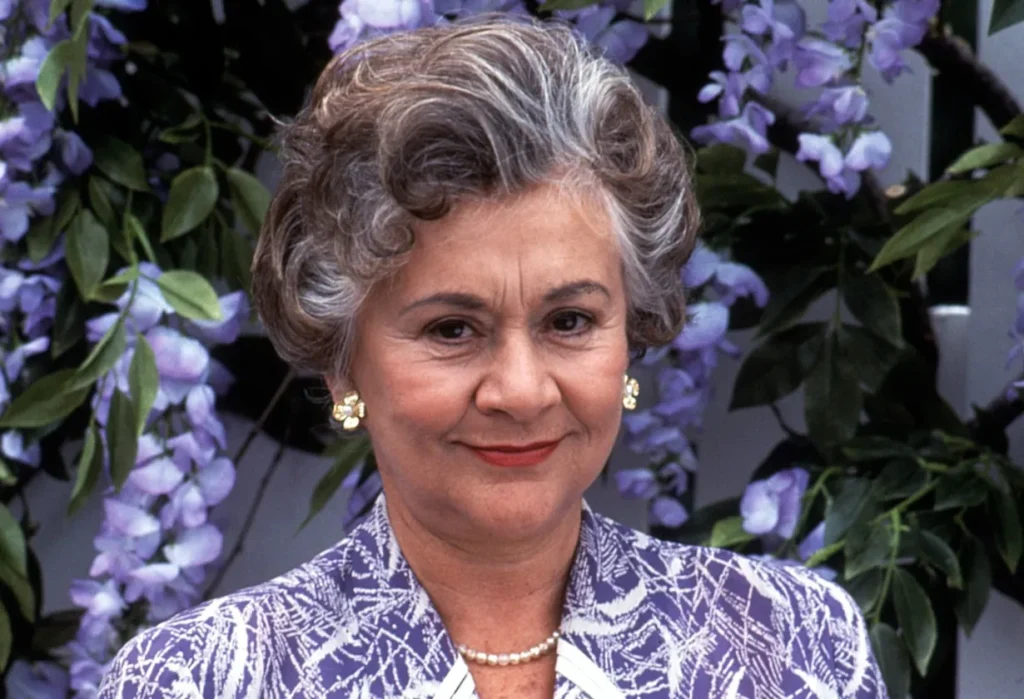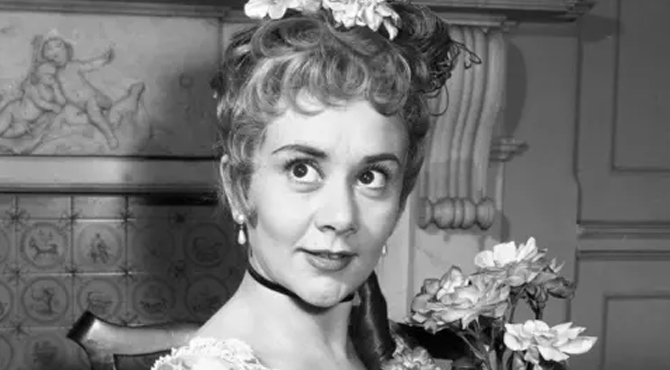She was the quiet soul of British theatre, a woman of extraordinary grace and strength whose presence transcended time, genre, and even fame itself. With a voice that could command a stage and a heart that illuminated every role she played, Dame Joan Plowright gave the world over six decades of unforgettable artistry. Her passing on January 16, at the age of 95, leaves behind not only a profound silence but a legacy as deep and enduring as the roles she so fiercely inhabited.

Joan Ann Plowright was more than just a revered actress — she was a guardian of theatre’s noblest traditions, a bridge between the golden age of British drama and the generations that followed. Throughout her remarkable life and career, she embodied intelligence, compassion, and authenticity in every performance, whether under the lights of London’s West End, on Broadway, or in the quiet intimacy of film.
Born in Lincolnshire in 1929, Plowright’s journey to the world stage began in regional repertory theatres, where she quickly distinguished herself with her emotional depth and natural command. It was in John Osborne’s groundbreaking play The Entertainer that she rose to prominence, performing opposite Laurence Olivier — the start of a legendary professional and personal partnership. The two would marry in 1961, following their reprised roles in the film adaptation of The Entertainer, and their collaboration would become a fixture of mid-century British theatre.
Plowright’s talents, however, were always her own. She won the Tony Award in 1961 for her searing performance in A Taste of Honey, a pioneering work of kitchen-sink realism that showcased her extraordinary emotional range. Her ability to convey quiet resilience and deep humanity would become hallmarks of her style.
On screen, she continued to shine with memorable roles in films like Equus (1977) and Enchanted April (1991). In the latter, her portrayal of the withdrawn, grieving Mrs. Jane Fisher earned her both an Academy Award nomination and a Golden Globe. That same night, she won a second Golden Globe for her performance in HBO’s historical drama Stalin, proving her versatility across both contemporary and period work.
Despite her immense success, Plowright never sought celebrity. She carried herself with humility, dedication, and a deep reverence for the craft. In 2004, she was appointed Dame Commander of the Order of the British Empire by Queen Elizabeth II, a fitting recognition of her lifelong service to the dramatic arts.
After retiring from acting in 2014, Dame Joan largely withdrew from public life, but her influence never waned. Her artistry continues to echo in every actor who values truth over glamour, and every stage where words are spoken with care and courage.
She is survived by her children, including director Richard Olivier, and by generations of artists who continue to draw inspiration from her legacy. In mourning her passing, the theatre world also celebrates the life of a woman who gave everything to the art she loved — and who, in doing so, became a part of its very soul.
Dame Joan Plowright has taken her final bow, but her voice — quiet, steady, and unforgettable — will forever echo in the wings.
